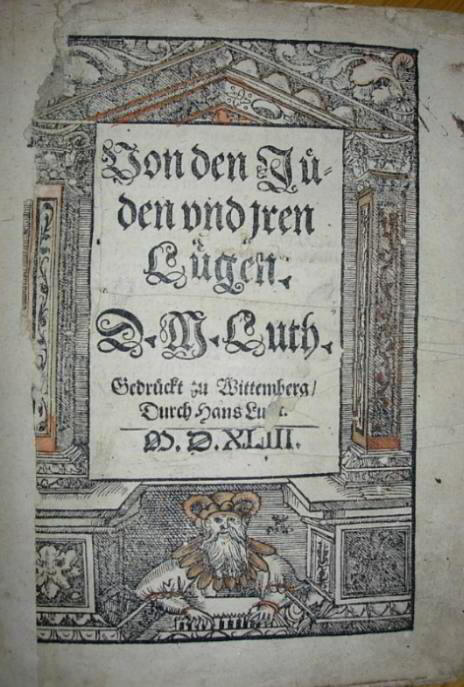As the church kicks off its yearlong celebration of the Reformation’s 500th anniversary, Germany’s main Protestant church has officially renounced its mission to convert Jews to Christianity.
The Evangelical Church in Germany (EKD) is made up of 20 regional Lutheran, Reformed and United churches and in response to the Holocaust mostly gave up efforts to convert Jews, so the decision should have been a formality. But as with any overdue reformation, things are more complicated than they first appeare.
RNS:
In Matthew’s Gospel, Jesus gave his Apostles the Great Commission to “make disciples of all nations.” And small groups of evangelicals in a few member churches have long opposed an official statement against conversion, despite calls from Jewish groups to issue one.
The EKD’s annual synod, which it calls its “church parliament,” finally drew up a resolution that was passed unanimously on Nov. 9 in Magdeburg. It said that Christians “are not called to show Israel the path to God and his salvation.”
Since God never renounced his covenant with the Jews, his chosen people, they do not need to embrace the new Christian covenant to be saved, it said.
“All efforts to convert Jews contradict our commitment to the faithfulness of God and the election of Israel,” the resolution read. That Christians see Jesus as their savior and Jews don’t is “a fact we leave up to God,” it said.
Josef Schuster, president of the Central Council of Jews in Germany, welcomed the resolution, which his group had been urging the EKD to pass for several years.
“This clear renunciation of the Mission to the Jews means very much for the Jewish community. With it, the EKD recognizes the suffering that the forced conversion of many Jews over the centuries has caused,” he said.
Dealing with Luther’s anti-Semitism was the first hurdle:
Although he initially expressed concern for the plight of Jews in medieval Europe, and hoped to bring them into the Christian fold, Luther changed tack later in life and in a treatise titled “On the Jews and Their Lies,” he urged his followers to burn down their homes and synagogues and confiscate their money.
The move to renounce the Judenmission was part of the EKD’s drive to deal with this embarrassing strain of anti-Semitism in their history so the Reformation anniversary could focus on Luther’s other legacies.
The EKD synod last year denounced the “undisguised hatred of Jews” in Luther’s writings and acknowledged that his anti-Semitism had inspired the Nazis centuries later.
In fact, the EKD synod broke with traditional theological anti-Semitism in 1950 by declaring that God’s covenant with the Jews was still valid. But it wasn’t until the 1990s that most member churches came out clearly against evangelization efforts.
Lutherans in the US and some evangelical groups within Lutheranism have either denounced mission to the Jews or cautiously embraced it.
The Evangelical Lutheran Church in America, the largest U.S. Lutheran body and a mainline denomination, denounced theological anti-Semitism in a 1994 declaration and urges its members in dialogue with Jews to “respect our neighbors’ concerns” about conversion.
The conservative Lutheran Church-Missouri Synod, the second largest Lutheran denomination in the U.S., has also denounced Luther’s diatribes against Jews but follows his injunction “to pray for them, so that they might become converted.”
In Germany, most evangelicals belong not to the 23 million-member EKD but to the German Evangelical Alliance, which claims over 1 million members. But some evangelicals are in EKD regional churches and have long defended some kind of mission to Jews.
They are strongest in the regional church in Wuerttemberg, the region around Stuttgart, where a group called the Gospel Service for Israel opposes outright conversion but supports “Messianic Jews” who accept Jesus as the savior of Israel.

